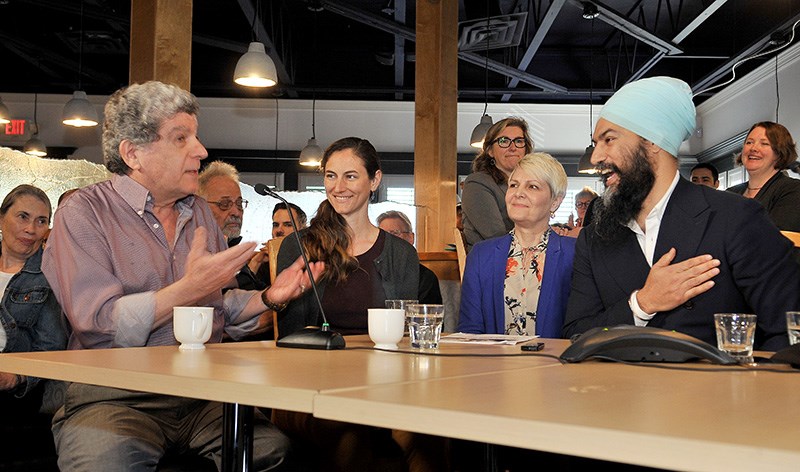The NDP is promising to bring in a universal and comprehensive national pharmacare program targeted to begin in 2020 if the party wins the next federal election.
NDP leader Jagmeet Singh dropped into Coquitlam’s Pasta Polo restaurant on Monday to announce the details of the pharmacare plan today with health critic Don Davies.
The party says the plan would see every Canadian covered for a list of prescription drugs determined by an arms-length group of experts that it says would be protected from industry and political pressure.
The party says the plan would save families who don't currently have private drug coverage an average $550 per year and it would save employers about $600 per employee with extended health benefits
The legislation would be modeled on the Canada Health Act and provide an annual pharmacare transfer to the provinces and territories, with provinces paying about 60 per cent of the total cost and the federal government providing the remaining 40 per cent.
Davies, who represents Vancouver Kingsway, says the cost to provinces will be about the same as they are paying now.
An analysis from the parliamentary budget officer says the total cost of a national pharmacare program would be $23.7 billion in 2020, representing a $4.2 billion savings each year over the current amount being spent on drugs in Canada.
Last week, Singh said an NDP government would expand the tax on investment profits as part of a package of measures aimed to pay for pharmacare, affordable child care and housing.
"Those measures would free up billions that would be available for this as well. The rest of financing would be a matter of discussion between the federal government and provinces and territories," Davies said.
The federal government taxes 50 per cent of profits made on investments, also known as capital gains, but the NDP wants to increase that threshold — known as the inclusion rate — to 75 per cent. It says that would raise about $3 billion in revenue.
The New Democrats have also talked about closing a stock-option loophole and cracking down on the use of bearer shares and foreign tax havens, which they say help the rich avoid paying their fair share of taxes to society.
In its budget last month, the Liberal government said Canada's patchwork of drug coverage, which comprises more than 100 public programs and 100,000 private insurance plans, is not well equipped to handle the increasingly expensive drugs now coming to market.
Drug spending in Canada is expected to surpass $50 billion by 2028, an expert panel has found.
In the budget, the Liberals promised a new agency to negotiate prescription drug prices for Canadians to try and drive down costs, a move it billed as an "important step" on the path to an eventual national pharmacare plan. It also promised to build a national formulary and promised to spend $500 million a year, starting in 2022, to subsidize drugs that treat rare diseases.



